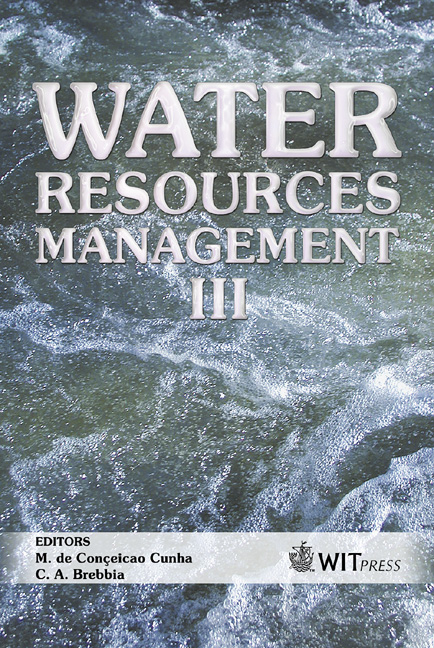Impact Of Rainwater Harvesting On Catchment Hydrology: Case Study Of The Modder River Basin, South Africa
Price
Free (open access)
Transaction
Volume
80
Pages
7
Published
2005
Size
539 kb
Paper DOI
10.2495/WRM050071
Copyright
WIT Press
Author(s)
E. Pretorius, Y. E. Woyessa, S. W. Slabbert & S. Tetsoane
Abstract
The river basin is increasingly acknowledged as the appropriate unit for the analysis and management of water resources, especially as water availability at the basin level becomes the primary constraint to agriculture. The Modder River basin is located within the Upper Orange Water Management Area in central South Africa. The irrigated agriculture in the basin draws water mainly by pumping out of river pools and weirs, whilst the rural small-scale farmers rely on rain-fed agriculture for crop production. In the past few years the Institute for Soil, Climate and Water of the Agricultural Research Council has been developing water harvesting techniques for small farmers in the basin with the objective of harnessing rainwater for crop production. This technique has resulted in a significant increase in crop yield compared to conventional practices and it is therefore expected that this practice will be adopted on a wider scale in the Modder River basin. The purpose of this project is to investigate and determine the impact of wider use of this practice on watershed hydrology and also the impact downstream of the river basin if the technique is applied on a wider scale. Keywords: rainwater harvesting, watershed management, crop production, hydrological modelling. 1 Introduction In a new paradigm shift related to integrated water resources management (IWRM) in the context of a river basin, attention is being drawn to consider the upstream \“off-site” influences on the various water use entities, as well as the
Keywords
rainwater harvesting, watershed management, crop production, hydrological modelling.





